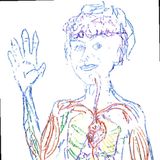The importance of public green spaces in the city has become more apparent during Covid times, with residents rediscovering them in their neighborhoods as corona-proof meeting places. The same can be said for the many civic initiatives in our cities, which were able to connect and contribute to the needs of the most vulnerable and marginalized groups during these pandemic times. What lessons can we take from these developments? During this first LIVECAST session, we look for social and ecological design principles that can help us to take steps towards more resilient urban neighborhoods. We will do so by exploring the interconnectedness between social and ecological issues, thereby approaching resilience not only from a human point of view, but also including the needs and contributions of other-than-human residents in our cities. Together with researchers and experts, we discuss the challenges and opportunities of bridging and integrating these different perspectives when designing for resilient neighborhoods.




We start with an introduction to the research project that is related to this LIVECAST series: ‘From Prevention to Resilience’, which explores the possibilities for public space and civic engagement to contribute to neighborhood resilience. We do so with:
- Boudewijn Boon is a senior researcher involved in the research groups of Spatial Urban Transformationand Civic Interaction Design at the Amsterdam University of Applied Sciences (AUAS). In his work, he is interested in designing interactions that are inspired by, and inclusive towards, the natural world. After seven years of doctoral and postdoctoral work at Delft University of Technology, he joined the ZonMw project ‘From Prevention to Resilience’ at AUAS in March 2021.
We then reflect upon various ecological and social initiatives that can help us get a better understanding on how to towards more resilient urban neighborhoods. We do so with:
- Cécile Espinasse is a Design Academy Eindhoven graduate (2019). She won the Social Design Talent Award 2019 for her project AvantGardeners, for which she became an artist in residence at Ergon, a social company in Eindhoven, which provides green services in the city. This work focussed on how to reconnect urban citizens with urban nature via the service of the public gardeners in Eindhoven. Her work focuses on trying to define what relationships citizens have, and more importantly, would like to have, with their green environment.
- Nienke Sluimer is an urban planner who works as advisor at STIPO, where she commits to a wide range of urban development projects. The multidisciplinary field of urban planning allows her to approach the urban environment with an integral vision, still her main interest is on the crossroads of the social- and environmental dimension. She is driven by the notion of environmental justice and the urgency to develop sustainable and equitable cities and enjoys translating the bigger picture to impact on a human scale.
- Beitske Boonstra is researcher at the Erasmus School of Social and Behavioural Sciences. She has expertise on active citizens and community initiatives in urban development and their interactions with (local) governments. Currently, Beitske works as academic researcher at the Department of Public Administration and Sociology on the project “Boundary spanning the sustainable city“, which investigates the skills and capacities of people who navigate across the boundaries of civic and public domains around issues of urban sustainability (a.k.a. city makers).
This project is made possible by: ZonMw grant round ‘COVID 19 Societal Dynamics’.








